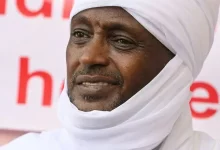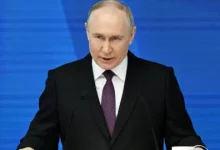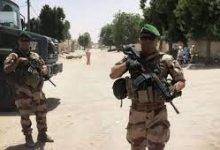A United Nations-backed tribunal found a member of the Lebanese group Hezbollah guilty of assassinating former Prime Minister Rafik Hariri in a massive bomb blast in 2005.
Three other Hezbollah suspects were cleared on Tuesday.
The verdict by the Special Tribunal for Lebanon (STL) – an international court based near The Hague, Netherlands – came more than 15 years after Hariri was killed on February 14, 2005, along with 21 others in the huge explosion in the capital, Beirut.
“We accept the verdict of the tribunal and want justice to be implemented,” said Lebanon former Prime Minister Saad Hariri, adding that he wants “just punishment” for the criminals.
Hariri said that those who assassinated his father aimed to “change the face of Lebanon and its system and its civilized identity” and said that there will be “no compromise” on this matter.
The four members of Iran-backed militia and political party Hezbollah were accused of organising and carrying out the attack, although the group was not formally charged and denied any involvement.
The four – Salim Ayyash, Assad Sabra, Hassan Oneissi, and Hassan Habib Merhi – were tried in absentia as Hezbollah has refused to disclose their whereabouts.
Ayyash used a mobile phone identified by prosecutors as critical in the attack, a judge said.
The Special Tribunal for Lebanon is “satisfied beyond a reasonable doubt” the evidence showed that Ayyash used the phone, Judge Micheline Braidy said, reading a summary of the 2,600-page verdict.
However, prosecutors provided insufficient evidence to prove the three others were accomplices, said Judge Janet Nosworthy.
Presiding Judge David Re said the evidence was largely based on mobile phone network data with the suspects accused of tracking Hariri’s movements in the months leading up to the attack, and the phones going “dark” after the blast.
Judge Janet Nosworthy said four different networks of mobile phones “were interconnected and coordinated with each other, and operated as covert networks at the relevant times”.
The court found the killing was politically motivated in an “act of terrorism designed to cause fear in the Lebanese population”.
“The tribunal has found beyond a reasonable doubt that a suicide bomber triggered the blast,” said Re in reading out the verdict.
The assassination plunged Lebanon into what was then its worst crisis since the 1975-90 civil war, setting the stage for years of confrontation between rival political factions.
Syrian forces, which were based in Lebanon for more than 40 years, were forced to withdraw from the country as many Lebanese blamed Damascus for the killing.
SOURCE: AL JAZEERA NEWS





